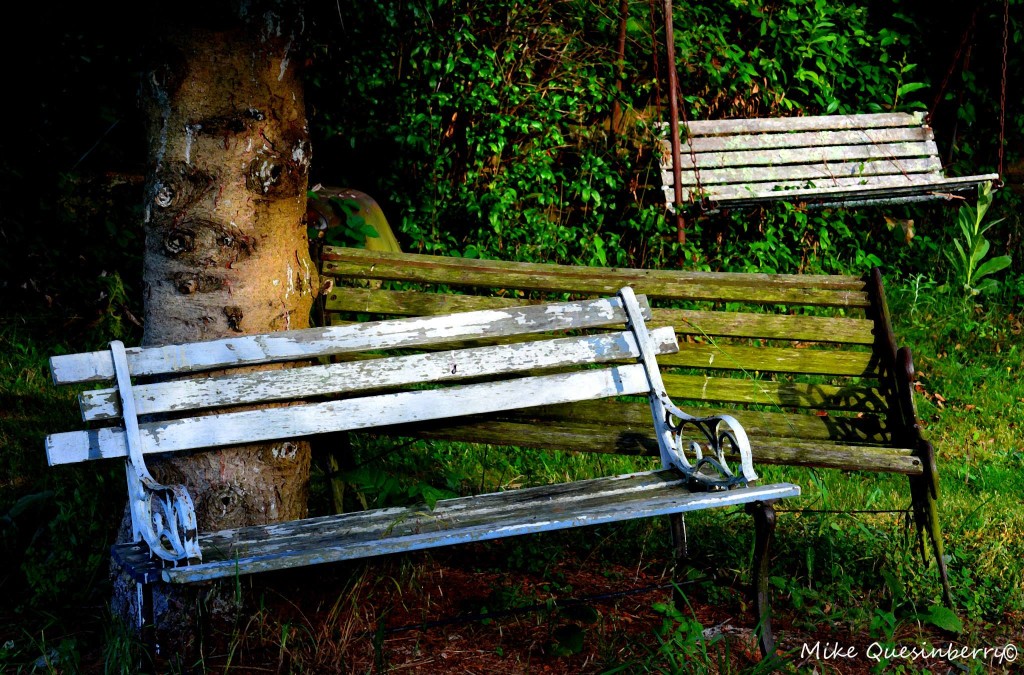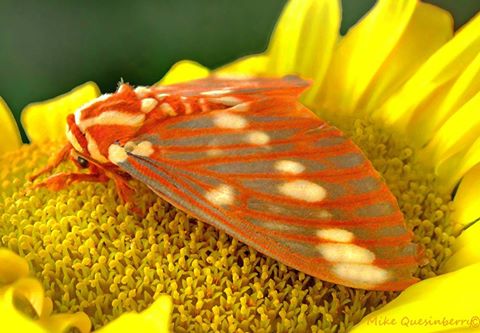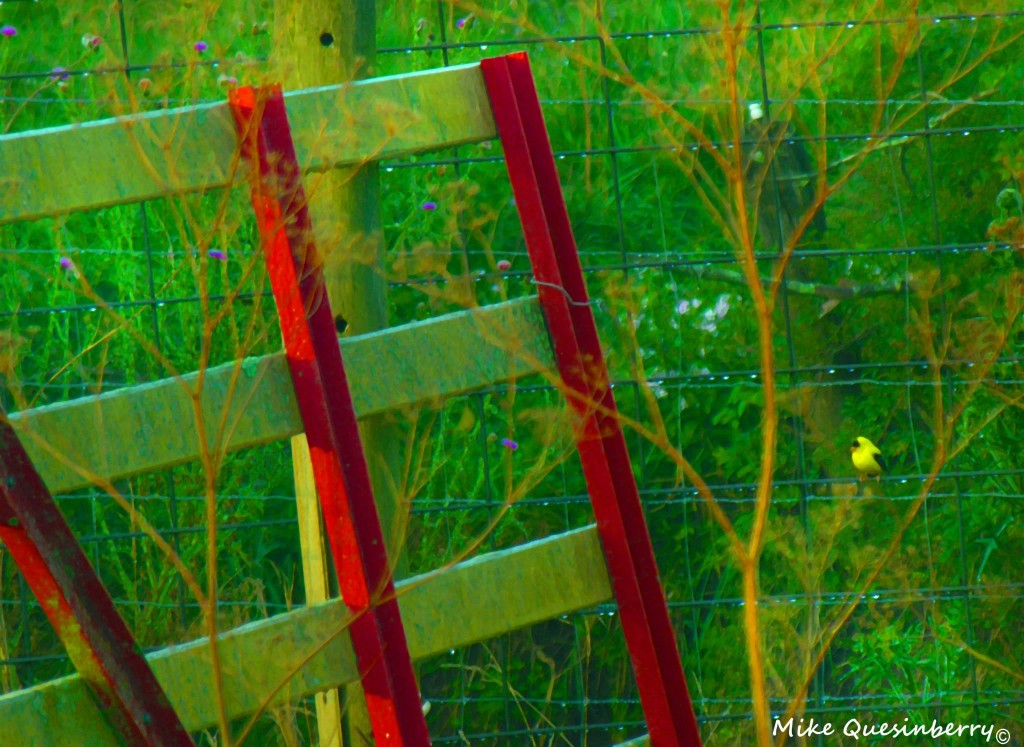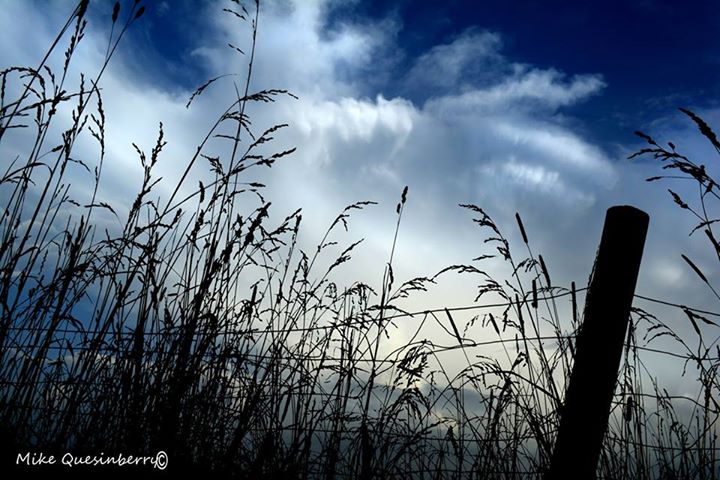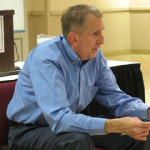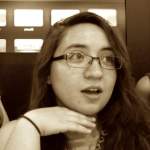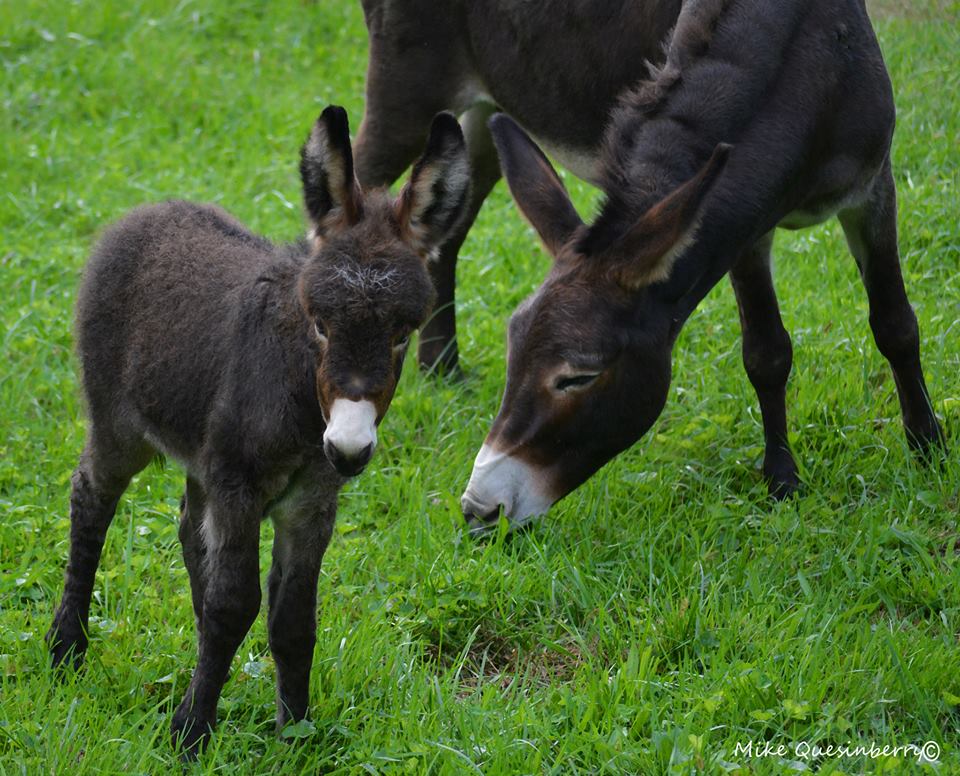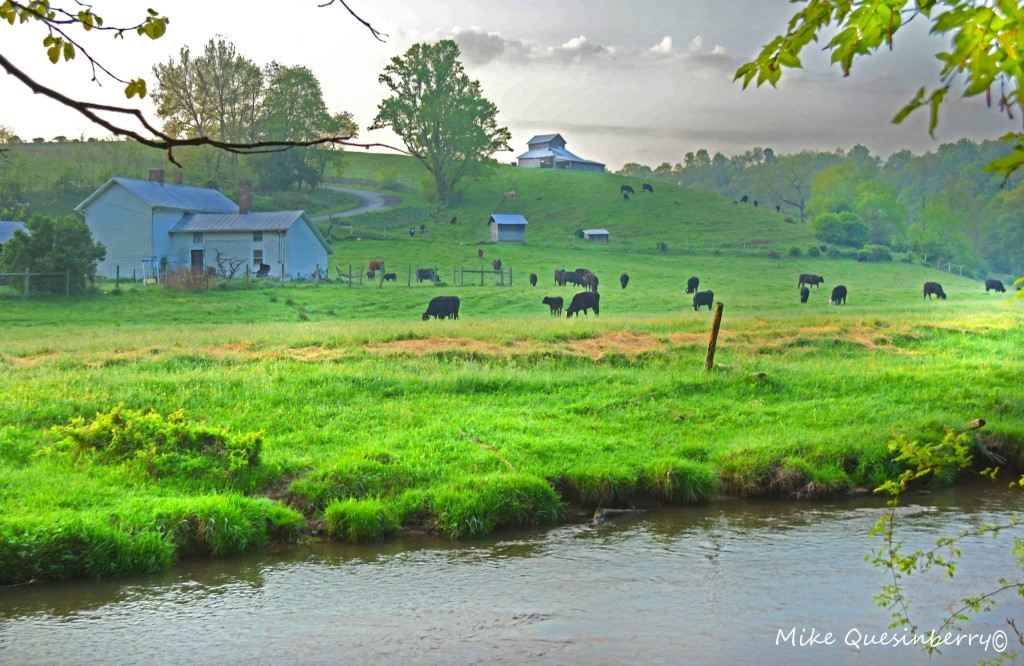
Vandal Boucher told his dog Hark to go snatch the duck out of the rushes where it had fallen, and Hark told him No. In days to come, Vandal probably wished he’d just pointed his Ithaca 12-gauge side-by-side at Hark’s fine-boned skull right that moment and pulled the trigger on the second barrel (he had emptied the first to bring down the duck) and blown the dog’s brains out, there at the edge of the freezing, sludgy pond. But that unanticipated answer—any answer would have been a surprise, of course, but this was no, unmistakably no, in a pleasant tenor, without any obvious edge of anger or resentment—that single syllable took him aback and prevented him from taking action.
Vandal’s old man, now: back in the day, Vandal’s old man Xerxes Boucher would have slain the dog that showed him any sign of strangeness or resistance to his will, let alone one that told him no. Dog’s sucking the golden yolks out of the eggs? Blam. Dog’s taking chickens out of the coop? Blam. Dog’s not sticking tight enough to the sheep, so the coyotes are chivvying them across the high pastures? This dog’s your favorite, your special pet? You wish I would refrain from shooting the dog? Well, sonny, you wish in one hand and shit in the other, see which gets full first. Blam. Nothing could stop him, no pleading or promises, and threats were out of the question. But that was Xerxes in his prime, and Vandal wasn’t a patch on him, everybody said so, Vandal himself had ruefully to agree with the general assessment of his character. So when Hark said no, Vandal just blinked. “Come again?” he said.
No.
Well, Vandal thought. He looked out into the reeds, where the body of the mallard he had just shot bobbed in the dark water. That water looked cold. Hark sat on the shore, blinking up at Vandal with mild eyes. It would have struck Xerxes Boucher as outrageous that the dog should balk at wading out there into that cold, muddy mess, the soupy muck at the pond’s margin at least shoulder-deep for the dog where the dead mallard floated, maybe deep enough that a dog—even a sizable dog like Hark—would have to swim.
But damn it if, on that gray November morning, with a hot thermos of his wife’s bitter black coffee nearby just waiting on him to drink it, and a solid breakfast when he got home after the hunt, and dry socks—Damned if Vandal couldn’t see the dog’s point.
“Okay,” he said. “This once.”
He was wearing his thick rubber waders, the ones that went all the way up to the middle of his chest, so he took off his coat—the frigid air bit into him, made his breath go short—laid the coat down on the bank, set the shotgun on top of the coat, and set off after the mallard himself. The waders clutched his calves as the greasy pond water surged around his legs, and his feet sank unpleasantly into the soft bottom. He considered what might be sleeping down there: frogs settled in for the winter, dreaming their slick wet dreams; flabby catfish whiskered like old men; great knobby snapping turtles, their thick round shells overlapping one another like the shields of some ancient army.
They were down there in the dark, the turtles that had survived unchanged from the age of the dinosaurs, with their spines buckled so that they fit, neatly folded, within their shells; and their eyes closed fast, their turtle hearts beating slow, slow, slow, waiting on the passing of another winter. And what if the winter never passed and spring never came, as looked more and more likely? How long would they sleep, how long could such creatures wait in the dark? A long time, Vandal suspected. Time beyond counting. It might suit them well, the endless empty twilight that the world seemed dead-set on becoming.
Vandal didn’t care to put his feet on such creatures, and when his toes touched something hard, he tried to tread elsewhere. The pond bottom was full of hard things, and most of them were probably rocks, but better safe than sorry. He had seen the jaws on snapping turtles up close, the beak on the skeletal face like a hawk’s or an eagle’s, hooked and hard-edged and sharp as a razor. Easy to lose a toe to such a creature.
When he reached the mallard—it was truly a perfect bird, its head and neck a deep oily green, unmarked by the flying shot—he plucked its limp body up out of the water and waved it over his head for the dog to see. “Got it!” he called.
Hark wasn’t paying any attention to him at all. He was sitting next to the tall silver thermos and gazing quizzically at the coat and, cradled on the coat, Vandal’s shotgun.
~ ~ ~
“I told him to go get the duck,” Vandal said to his wife, who was called Bridie. Then, to Hark, he said, “Tell her what you told me.”
No, said Hark.
Bridie looked from her husband to the dog. “Does he mean to tell you no,” she asked, working to keep her voice even and calm, her tone reasonable. “Or does he mean he won’t tell me?”
No, the dog said again. It wasn’t like a bark, which Bridie would have much preferred, one of those clever dogs that has been taught by its owner to “talk” by mimicking human speech without understanding what it was saying. “What’s on top of a house?” Roof! “How does sandpaper feel?” Rough! “Who’s the greatest ballplayer of all time?” Ruth!
DiMaggio, she thought to herself. That’s the punchline. The dog says Ruth! but really it’s DiMaggio.
Vandal laughed. He was a big broad-shouldered good-natured man with an infectious laugh, which was one of the reasons Bridie loved him, and she smiled despite her misgivings. The dog seemed delighted with the turn of events too.
“That’s the sixty-four dollar question, ain’t it?” Vandal said. He clapped Hark on the head in the old familiar way, and the dog shifted out from under the cupped hand, eyes suddenly slitted and opaque.
No, it said.
Much as she loved Vandal, and much as she had hated his bear of a father, with his great sweaty hands always ready to squeeze her behind or pinch her under her skirt as she was climbing the stairs, always ready to brush against her breasts—glad as she was that the mean old man was in the cold cold ground, she couldn’t help but think at that moment that a little of Xerxes’ unflinching resolve wouldn’t have gone amiss in Vandal’s character, in this circumstance. She wished that the dog had said pretty much anything else: Yes, or better yet, yes sir. Even a word of complaint, cold, wet, dark. Afraid. But this flat refusal unnerved her.
“He takes a lot on himself, doesn’t he? For a dog,” she said.
“Talking dog,” said Vandal, his pride written on his knobby face, as though he had taught the dog to speak all by himself, as though it had been his idea.
Hark had begun wandering through the house, inspecting the dark heavy furniture like he had never seen it or the place before. Not exploring timidly, like a guest unsure of his welcome, but more like a new owner. Bridie thought she saw him twitch a lip disdainfully as he sniffed at the fraying upholstery of the davenport. He looked to her for a moment as though maybe he were going to lift his leg. “No!” she snapped. “Bad boy!”
He glanced from her to Vandal and back again, trotted over to Vandal’s easy chair with his tail curled high over his back. He gave off the distinct air of having won some sort of victory. “Come here,” Bridie called to him. She snapped her fingers, and he swung his narrow, intelligent head, looking past his shoulder at her.
No, he said, and he hopped up into Vandal’s chair. Bridie was relieved to see how small he was in the chair, into which Vandal had to work to wedge his bulky frame.
There was room for two of Hark in the seat, three even, so lean was he, slender long-legged retriever mix. Vandal nodded at him with approval. The dog turned around and around and around as though he were treading down brush to make himself a nest, in the ancient way of dogs. In the end, though, he settled himself upright rather than lying down, his spine against the back of the chair, his head high.
“Xerxes wouldn’t never allow a dog up in his chair like that,” Bridie said. And was immediately sorry she had said it. Vandal had adored and dreaded his brutal, unstoppable old man, and any comparison between them left him feeling failed and wanting. Xerxes, Xerxes. Will he never leave our house?
“Xerxes never had him a talking dog,” Vandal said. He handed the dead mallard to her. Its glossy head and neck stretched down toward the floor in a comical way, its pearlescent eyes long gone into death. It was a large, muscular bird.
“Not much of a talking dog,” Bridie said. She turned, taking the mallard away into the kitchen when she saw the flash of irritation in Vandal’s eyes. She didn’t look toward Hark, because she didn’t want to see the expression of satisfaction that she felt sure animated his doggy features. She wanted to let Vandal have this moment, this chance to own something that his father couldn’t have imagined, let alone possessed, but it was—it was wrong. Twisted, bent. It was a thing that couldn’t be but was, it was unspeakable, and it was there in her living room, sitting in her husband’s chair. “Not much of one, if all it can manage to say is no.”
~ ~ ~
Hark reclined in the easy chair in the parlor. The television was tuned to the evening news, and the dog watched and listened with bright gleaming eyes, giving every appearance of understanding what was said: Wars and rumors of wars. Earthquakes and famines and troubles. None of it was good at all, it hadn’t been good in some little time, but none of it seemed to bother him in the least. He chewed briefly at his own hip, after some itch that was deeply hidden there, and then went back to his television viewing.
Vandal sat on the near end of the davenport, not appearing to hear the news. From time to time he reached out a hand to pet Hark, but Hark shifted his weight and leaned away, just out of reach. It was what Bridie had always striven to do when Xerxes went to put his hands on her but that she had somehow never managed, to create that small distance between them that would prove unbridgeable. Always the hand reached her, to pet and stroke and pinch, always when Vandal’s attention was turned elsewhere. And them living in Xerxes’ house, and her helpless to turn him away.
About the third time Vandal put his hand out, Hark tore his gaze from the TV screen, snarled, snapped, his jaws closing with a wicked click just shy of Vandal’s reaching fingertips. Vandal withdrew his hand, looking sheepish.
“No?” he asked the dog.
No, Hark said, and he settled back into the soft cushions of the chair, his eyes fixed once more on the flickering screen.
~ ~ ~
Over Bridie’s objections, Hark ate dinner at the table with them that night. Vandal insisted. The dog tried to climb into the chair with arms, Vandal’s seat at the head of the table. Vandal wasn’t going to protest, but Bridie wouldn’t allow it. She flapped the kitchen towel—it was covered in delicate blue cornflowers—at him, waved her hands and shouted “Shoo! Shoo!” until he slipped down out of the chair and, throwing resentful glances her way, slunk over to one of the chairs at the side of the table and took his place.
He ate like an animal, she noted with satisfaction, chasing the duck leg she had given him around and around the rim of the broad plate with his sharp snout, working to grasp the bone with his teeth, his tongue hanging drolly from the side of his mouth. Always, the leg escaped him. Each time it did, she put it carefully back in the middle of the plate, and he went after it again. From time to time he would stop his pursuit of the drumstick and watch Bridie and Vandal manipulate their utensils, raise their forks to their mouths, dab at their lips with napkins. His own napkin was tucked bib-like under the broad leather strap of his collar, and it billowed ridiculously out over his narrow, hairy chest. Vandal watched this process through a number of repetitions, his brow furrowed, before he put down his knife and fork.
“You can’t let a dog have duck bones like that,” he said. “He’ll crack the bone and swallow it and the sharp edges will lodge in his throat.”
Good, Bridie thought. Let him. The dog stared across the table at her, his face twisted into what she took to be an accusatory grimace. Hark had always been Vandal’s dog, never hers, and she had never felt much affection for him, but he had always seemed to her to be a perfectly normal dog, not overfriendly but that was normal in an animal that was brought up to work rather than as a pet. Restrained in his affections, but never hostile. Lean and quick and hard-muscled, with the bland face and expressions of his kind. And now he looked at her as though he knew what she was thinking—an image of Hark coughing, wheezing, hacking up blood on the kitchen floor swam back into her consciousness—and hated her for it.
Was there an element of surprise there too? she wondered. He hadn’t known about the bones. An unanticipated danger, and now he knew, and she could sense him filing the information away, so that such a thing would never be a threat to him again. What else was he ignorant about?
Bridie had never disliked Hark before, had never disliked any of Vandal’s boisterous happy-go-lucky hunting dogs, the bird dogs, the bear dogs, the coon dogs, all of them camped out in the tilting kennel attached to the pole barn. They shared the long fenced run that stretched across the barnyard, and they would woof and whirl and slobber when she went out to feed them. Dogs with names like Sam and Kettle and Bengal and Ranger. And Hark. Hark the waterdog, a little quieter than the others, more subdued, maybe, but nothing obvious about him to separate him from the rest of them. They were Vandal’s friends and companions, they admired him even when Xerxes fed him scorn, and they were kind to him when even she herself wasn’t. She didn’t fool with them much.
Something had come alive in Hark, something that allowed him, compelled him, to say no, and now he was at her table when the rest were outside in the cold and the dark, now he was looking her in the eye. That was another new thing, this direct confrontation; he had always cast his gaze down, properly canine, when his eyes had locked with hers in the past. He’d regained his earlier cocksureness, and the impression of self-satisfaction that she had from him made him unbearable to her.
Vandal was leaning over, working his knife, paring the crispy skin and the leg meat away from the bone. “Here you go,” he told the dog, his tone fond. Hark sniffed.
“If he plans to eat his food at the table like people,” Bridie said, “then he better learn to pick it up like people.”
Vandal stopped cutting. Bridie half-expected Hark to say No in the light voice that sounded so strange coming out of that long maw, with its mottled tongue and (as they seemed to her) cruel-looking teeth. Instead, he nudged Vandal out of his way and planted one forepaw squarely on the duck leg. He understands, Bridie thought to herself.
The plate tipped and skittered away from him, the duck leg tumbling off it, the china ringing against the hard oak of the tabletop. The dog looked perplexed, but Vandal slid the plate back into place, picked up the drumstick and laid it gently down.
Just as gently, Hark put his paw on the leg bone, pinning it. He lowered his head, closed his teeth securely on the leg—the chafing squeak of tooth against bone made Bridie squint her eyes in disgust—and pulled away a triumphant mouthful of duck. He tossed it back, swallowed without chewing, and went after the leg again.
“Good dog,” Vandal said. The dog’s ears flickered at the familiar phrase, but he didn’t raise his head from the plate. Bridie bit into her own portion. Duck was normally one of her favorites, but this meal filled her mouth like ashes. Vandal stopped chewing, leaned down close to his plate, his lips pursed as though he were about to kiss his food, his eyes screwed nearly shut. He made a little spitting noise, and a pellet of lead shot, no bigger than a flea, pinged onto his plate, bounced, and lay still.
~ ~ ~
After supper, as Bridie retted up the kitchen, Vandal sat cross-legged on the floor in the parlor, the shotgun broken down and spread out on several thicknesses of newspaper on the floor before him. A small smoky fire—the wood was too green to burn well, hadn’t aged sufficiently—flared and popped in the hearth.
Hark sat in the comfortable chair, and his posture had become—she felt sure of this—more human than it had been previously. He was sitting like a man now, a misshapen man, yes, with a curved spine and his head low between his shoulders, but he was working to sit upright. He looked ridiculous, as she glanced in at him from where she was working, but she felt no impulse to laugh. Was he larger than he had been? Did he fill the chair more fully? While she watched, he lost his precarious balance, slipped to the side, thrashed for a moment before righting himself again.
The television was on, the usual chatter from the local news, a terrible wreck out on the state highway, a plant shutting down in the county seat, a marvel on a nearby farm, a Holstein calf born with two heads, both of them alive and bawling, both of them sucking milk. Who could even take note of something like that in these times, Bridie wondered to herself as she worked to scrub the grease from the plates. The next day it would be something else, and something else after that, until the wonders and the sports and the abominations (how to tell the difference among them?) piled up so high that there wouldn’t be any room left for them, for her and for Vandal, the regular ones, the ones that remained.
A talking dog? Was that stranger than a two-headed calf? Stranger than poor old Woodrow Scurry’s horses eating each other in his stables a fortnight earlier? Every day the world around her seemed more peculiar than it had the day before, and every day she felt herself getting a little more used to the new strangenesses, numb to them, and wondering idly what ones the next day would bring.
How you use? They were Hark’s words, clumsy and laughable, coming to her over the din of the voices on the television. There was another sort of show on, this one a game of some type, where people shouted at one another, encouragement and curses. That thing, Hark said.
“So,” Vandal said, “you can say more than No.”
How you use that thing, Hark said again. A demand this time, not a question.
The shotgun, Bridie thought, and she dropped the plate she was washing back into the sink full of lukewarm water and dying suds and hurried into the den, drying her hands on a dishtowel as she went.
“Don’t tell him that,” she said.
Vandal looked up at her, startled. Just above him on the wall hung a picture that his mother had hung there as a young woman. She had died young. In the decades since it had been hung, the picture, it occurred to Bridie, had taken in every event that had occurred in that low-ceilinged, claustrophobic room. It depicted Jesus, a thick-muscled Jesus, naked but for a drape of white cloth, getting his baptism in the river Jordan. The Baptist raised a crooked hand over his head, water spilling from the upraised palm.
Vandal was fitting the barrels of the shotgun—which had been his old man’s but which was now his, like the house, like the farm—back into the stock. The metal mated to the wood with a definitive click. “Why in the world wouldn’t I tell him?”
Bridie was at a loss for a cogent answer. It seemed obvious to her that Vandal ought not to impart such information to the dog just for the asking, but he didn’t share her worry at all, it was clear. How to explain? The dog looked at her with, she thought, an expression of feigned innocence. “A dog ought not to know how to use a gun,” she said.
Vandal chuckled. “He doesn’t even have hands. He has no fingers.”
“So why tell him how a gun works?”
“Because he wants to know.”
“And should he know everything he wants to, just because he wants to know it?”
Vandal shrugged. Bridie felt heat flooding her face. How could he not understand? He thought it was terrific, the way the dog had decided to talk, the way he could sit there with it and watch television, the way it asked him questions, the way it wanted to know the things that he knew. He was happy to share with it: his table, his food, his house, his knowledge. He was treating the dog like a friend, like a member of the family. Like a child, his child.
“What he wants is to have hands. What he wants is to be a man. To do what you do. To have what you have.”
She caught Hark gazing at her intently, his eyes gleaming, hungry, his nose wet, his broad flat tongue caught between the rows of his teeth.
“What’s wrong with that?” Vandal wanted to know.
He is not your boy, she wanted to tell him. He is not your son. He is a dog, and it’s wrong that he can talk. You want to share what you have with him, but he doesn’t want to share it with you. He wants to have it instead of you.
The dog wrinkled his nose, sniffing, and she knew suddenly that he was taking her in, the scent of her. A dog’s nose was, she knew, a million times more sensitive than a man’s. He could know her by her scent. He could tell that she was afraid of him. He could follow her anywhere, because of that phenomenal sense of smell. In prehistoric times, before men became human and made servants out of them, Hark and his kind would have hunted her down in a pack and eaten her alive. Her scent would have led them to her. Hark’s eyes narrowed, and her words clung to her jaws. She couldn’t bear to speak them in front of the dog. She blinked, dropped her gaze and, under the animal’s intense scrutiny, fled the room.
Behind her, Vandal spoke. “This here’s the breech,” he said. The gun snicked open. “This here is where the shells go.” The gun thumped closed.
**Excerpted from Miracle Boy and Other Stories (Press 53).
Pinckney Benedict grew up on his family’s dairy farm in the mountains of southern West Virginia. He has published three collections of short fiction (Town Smokes, The Wrecking Yard, and Miracle Boy) and a novel (Dogs of God). His stories have appeared in Esquire, Zoetrope: All-Story, StoryQuarterly, Ontario Review, the O. Henry Award series, New Stories from the South, the Pushcart Prize Anthology, The Oxford Book of American Short Stories, and The Ecco Anthology of Contemporary American Short Fiction. He is the recipient of a Literature Fellowship from the National Endowment for the Arts, a Literary Fellowship from the West Virginia Commission on the Arts, a Michener Fellowship, the Nelson Algren Award, an Individual Artist’s grant from the Illinois Arts Council, and Britain’s Steinbeck Award. He is a professor in the English Department at Southern Illinois University in Carbondale, Illinois.
Read an interview with Pinckney here.

